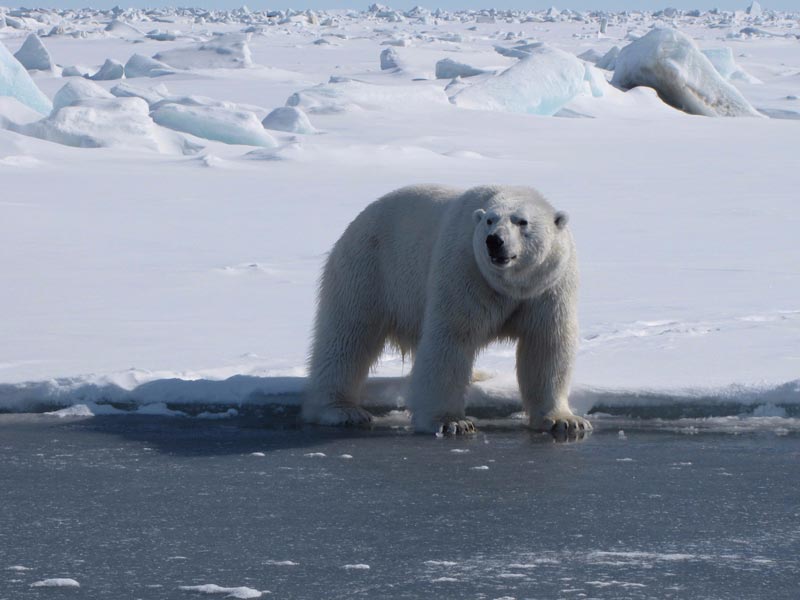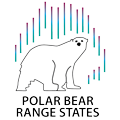Inuvialuit–Inupiat Polar Bear Management Agreement in the Southern Beaufort Sea
Subpopulation: Southern Beaufort Sea.
 Photo credit: USFWSThe Inuvialuit people in Canada and the Inupiat people in Alaska (U.S.) both harvest polar bears from the Southern Beaufort Sea subpopulation. Due to concerns related to the combined harvest level, in 1968, Canada established harvest quotas. After the passage of the Marine Mammal Protection Act in the U.S. in 1972, only coastal-dwelling Alaskan Natives were allowed to harvest polar bears for subsistence purposes and for making and selling handicrafts. No quota was established, although authorized take was required to be non-wasteful. At the time, there was no mechanism to cooperatively manage the harvest between the two countries. The 1973 International Agreement on the Conservation of Polar Bears committed countries that share polar bear populations to conduct and coordinate research, exchange information and consult on management. Joint concern about the population led the Inuvialuit Game Council (on behalf of the Inuvialuit in Canada) and the North Slope Borough Fish and Game Management Committee (on behalf of the Inupiat of the North Slope in Alaska) to negotiate an agreement to help ensure the health and stability of this subpopulation and maintain a sustained harvest for traditional users. Originally signed in 1988, the Inuvialuit–Inupiat Polar Bear Management Agreement is updated regularly.
Photo credit: USFWSThe Inuvialuit people in Canada and the Inupiat people in Alaska (U.S.) both harvest polar bears from the Southern Beaufort Sea subpopulation. Due to concerns related to the combined harvest level, in 1968, Canada established harvest quotas. After the passage of the Marine Mammal Protection Act in the U.S. in 1972, only coastal-dwelling Alaskan Natives were allowed to harvest polar bears for subsistence purposes and for making and selling handicrafts. No quota was established, although authorized take was required to be non-wasteful. At the time, there was no mechanism to cooperatively manage the harvest between the two countries. The 1973 International Agreement on the Conservation of Polar Bears committed countries that share polar bear populations to conduct and coordinate research, exchange information and consult on management. Joint concern about the population led the Inuvialuit Game Council (on behalf of the Inuvialuit in Canada) and the North Slope Borough Fish and Game Management Committee (on behalf of the Inupiat of the North Slope in Alaska) to negotiate an agreement to help ensure the health and stability of this subpopulation and maintain a sustained harvest for traditional users. Originally signed in 1988, the Inuvialuit–Inupiat Polar Bear Management Agreement is updated regularly.
For additional information about the Inuvialuit-Inupiat Agreement, including current voluntary harvest quotas, please visit the North Slope Borough’s polar bear website or Inuvialuit’s Joint Secretariat website.
Source: Circumpolar Action Plan, Annex II
